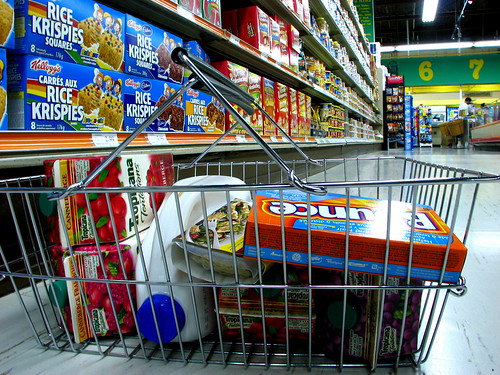The Dieter’s Paradox: Stereotype and Eat Mindfully (and Giveaway!)
Stereotype Mindfully When It Comes to Food
Our food choices are clouded by our tendency to stereotype foods into virtues and vices and to rely solely on these stereotypes—rather than on the actual nutritional content—to select what and how much to eat. Stereotyping foods into vices and virtues polarizes our judgment, canonizing foods we consider healthful and demonizing foods we regard as indulgent. We can reduce this stereotyping bias by following these simple rules:
1. Beware of the “health” halo. Even those who know the difference between healthy eating and dieting are often fooled by the aura of healthiness of many “virtuous” foods and ingredients like granola, oatmeal, protein and fiber, believing that healthy products are also more diet-friendly. Not all healthy food is low in calories.
2. Beware of the “brand” halo. We tend to think of brands like Lean Cuisine, Healthy Choice and Subway as having a healthy, low-calorie image, whereas McDonald’s, Burger King and Chili’s are viewed as bastions of indulgent, high-calorie meals. In reality, however, “vice” brands frequently offer options that are healthier than the options offered by “virtue” brands. Focus on the food, not the brand.
3. Beware of the “label” halo. We tend to believe that foods described as healthy, low fat and light are a perfect match with our dieting goals. These labels blindside us, eclipsing more pertinent nutritional information. Ignore the label and focus on the food.
4. Pay attention to quantity. Stereotyping also makes us lose sight of quantity. Our relentless focus on whether the foods we eat are virtues or vices causes us to discount the fact that, depending on quantity, many foods—like bread, chocolate, and even wine—can be our best friends or worst enemies. Remember it’s not just about good or bad. How much we eat is often more important than what we eat.
The above is an excerpt from the book The Dieter’s Paradox: Why Dieting Makes Us Fat by Alexander Chernev. Copyright © 2011 Alexander Chernev, author of The Dieter’s Paradox: Why Dieting Makes Us Fat.
Yep, and there’s even more of that in the book, including how and why we actually add more food (albeit healthy ones) to our plates when we seek to eat better, thereby leading us to eat even more and gain weight. If you’d like to read the full book, leave a comment below with why you’d like to win it, and we’ll select one U.S. reader to win it in about a week. Good luck, and be wary of those halos! —Jenn

